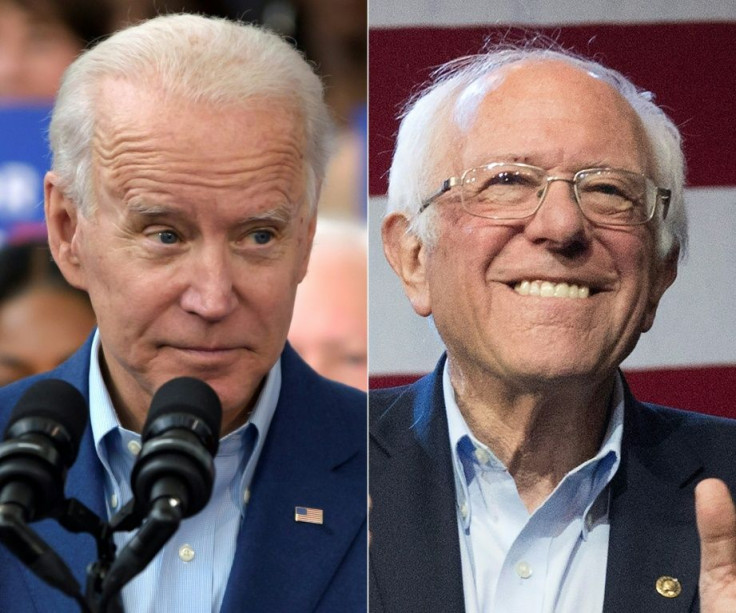What's Next For Democratic Primaries? Joe Biden, Bernie Sanders To Compete In These Four States On March 17

As the primary season continues, former Vice President Joe Biden and Vermont Sen. Bernie Sanders are set to compete in four states on March 17: Arizona, Ohio, Florida and Illinois.
The March 17 elections could be the last stand for Sanders, as 577 pledged delegates are at stake. On Wednesday, Sanders confirmed to reporters that he is remaining in the race.
The biggest prize of the day will be Florida, with 219 pledged delegates. Sanders is relying on the state’s Latino population to win the primary but Latino voters could be moving towards Biden. A poll from Telemundo released Wednesday shows Biden beating Sanders by an 11-point margin among Latinos in Florida. Sanders’ comments about Cuba under Fidel Castro could also push Cuban-American voters to prefer Biden.
Sanders may have better luck in Ohio, with the state awarding 136 pledged delegates. He will try to win over disaffected working-class and union voters in the Midwestern state, along with young progressive voters in college towns such as Oberlin. Biden, however, will likely have an advantage with suburban voters and black voters, with African-Americans comprising a little more than 14% of the state’s population.
Illinois offers 155 pledged delegates. Biden has been picking up major endorsements there, winning the backing of three African-American members of Congress from Illinois: Rep. Bobby Rush, Rep. Danny Davis and Rep. Robin Kelly. Sanders will still likely be ahead with young progressive voters in Chicago.
Biden may also have an advantage in Arizona, with the state offering 67 pledged delegates. Former Arizona congresswoman and gun violence activist Gabby Giffords endorsed Biden on Wednesday, calling him a "choice for a true gun safety president."
On Tuesday, Biden managed to win Michigan, a state Sanders won against Hillary Clinton in 2016. Sanders, however, does narrowly lead Biden in Washington state. Biden currently has 847 delegates, while Sanders has 685. Candidates need 1,991 delegates to secure the Democratic nomination.
© Copyright IBTimes 2025. All rights reserved.





















